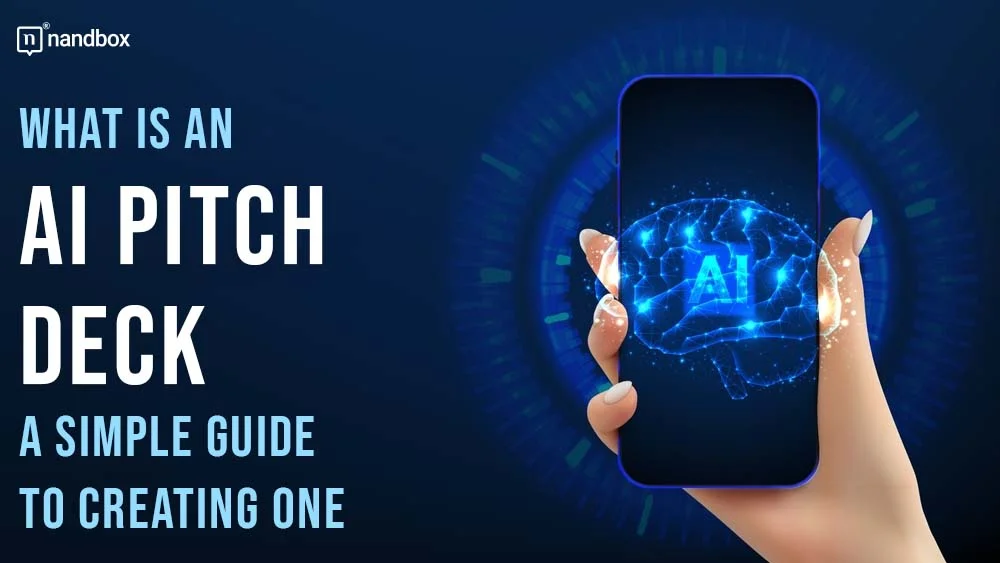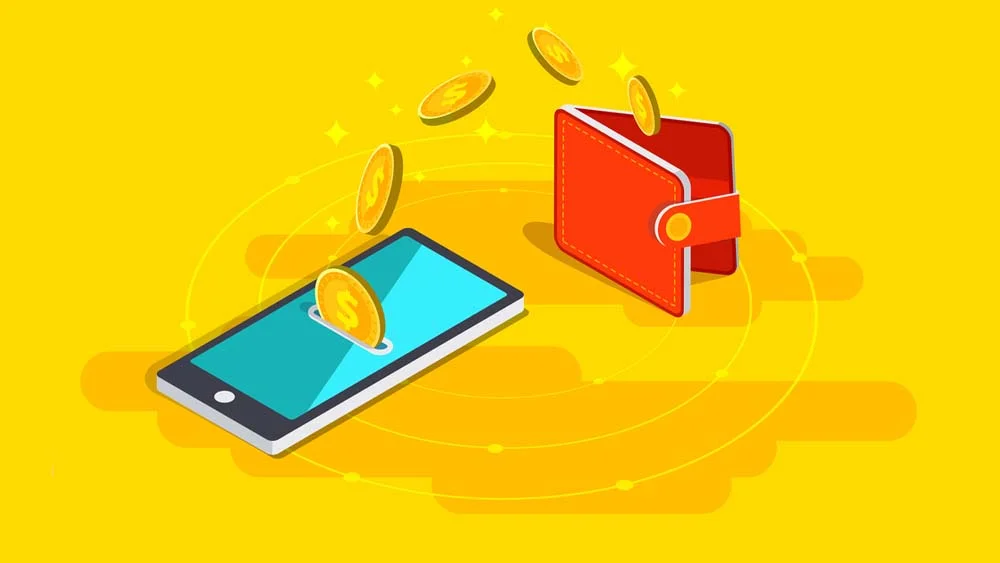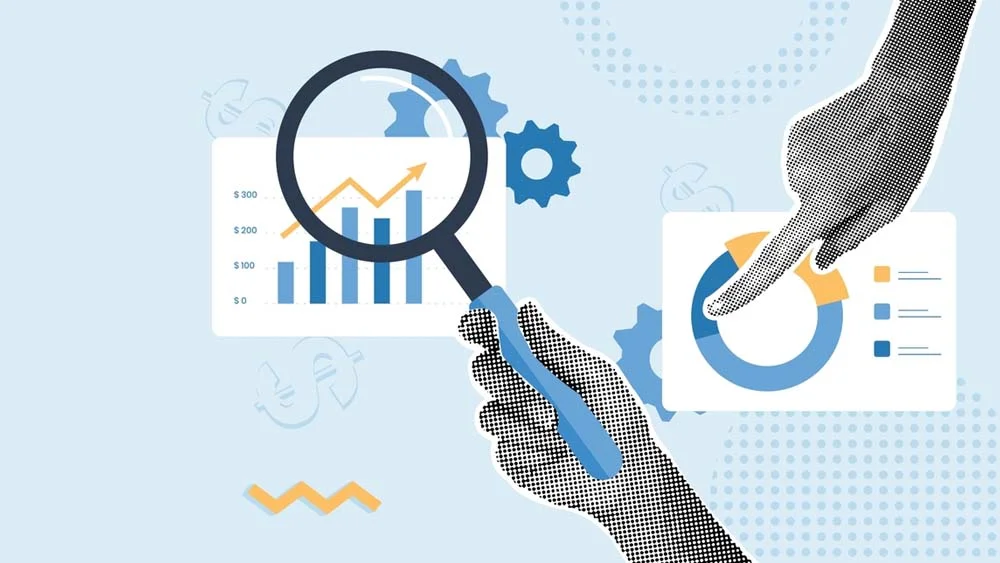The emergence of AI has changed the world as much as the internet, industrialization, or the discovery of penicillin. Every specialist asks themselves the question: can I do the same thing using AI? Most often, the answer is yes. There’s always something in your routine that AI can help you do faster and more easily. Of course, AI won’t create a decent pitch deck for you, but it can definitely help you make it faster and possibly even better.
What is a Pitch Deck and Why Does It Matter?
Let’s start with the basics so that all readers who may not fully understand what a pitch deck is can be on the same page. A pitch deck is a presentation often prepared for investors to showcase your startup or business and convince them to invest in your idea. Many designers who create these presentations will tell you that a good pitch can save even a mediocre idea—and vice versa. Sometimes, even with a great business idea, you can fail without even trying because no one will believe in it due to a bad presentation.
That’s why a good pitch, paired with a strong presentation, is 50% of your startup’s success. A well-done pitch shows you in the best light as an interesting, intelligent, and creative person. It’s essentially your introduction to a future investor.
Elements of a Strong Pitch Deck for an App
Before we dive into how AI can help you create a presentation in just two clicks, let’s look at how AI can actually improve your pitch. First, we need to understand what makes a pitch deck effective. To keep the investor engaged during your pitch, it’s important to remember the key elements found in all successful presentations.
Problem & Solution
Every successful business solves a problem or simplifies an existing way of addressing an issue. The concept of most presentations often revolves around familiar phrases like “Are you tired of…” or “Have you ever wanted to…?”. Some may view this approach as unoriginal, but that’s how the world works—you’re valuable when you solve someone’s problem or provide a new, more optimal solution than what came before.
Market Opportunity
This is where we discuss how to win over an investor. A good investor is often a business shark who has seen many successes and even more failures. At this point, the investor will use their trained eye to look for weaknesses or assess whether your idea has potential. Most importantly, they’ll want to see if you understand the strengths and weaknesses of your business or startup. No pressure, but you need to do your homework thoroughly. It’s also wise to hire a professional to evaluate your pitch deck. These experts have seen both successful and unsuccessful projects, and the added benefit of a third-party evaluation is its objectivity, no matter how strange that might sound. Think about it.
Money and Reassurances
This is the most challenging part of creating a pitch deck. It’s important to note right away that you should be as honest with your audience as possible. Imagine you’re in a courtroom and have taken an oath. It’s not as damaging to make a mistake as it is to deceive the investor—though it’s best to avoid both. Money likes to be counted accurately, so if you’re not confident in your abilities, hire someone to help.
All the elements mentioned earlier should be handled by you, and use Presentation AI tools if you’re certain of what you’re doing.The risk of failure is high here, so don’t look for an easy solution to a complex problem. Do the work yourself—this stage can be seen as the preparatory phase, where you gather data for further analysis. AI won’t do it for you.
How AI Can Help in Creating a Pitch Deck
Here’s the part of the article everyone has been waiting for: how you can simplify your life with AI while developing a pitch deck. Without further ado, let’s get down to business.
Automated Data Analysis and Insights
AI can be extremely useful when you encounter a vast amount of statistics that could be beneficial—examples, historical data, and other successful presentations (though I’m not sure where you would find those). You can provide all of this information to AI for analysis and ask it to give you summarized, processed data. This is incredibly convenient, as people once spent months doing this kind of work, while AI can accomplish it in seconds. It’s straightforward and valuable; let AI process and organize your data.
Content Generation and Slide Creation
Here, you need to be cautious; it’s easy to create irrelevant content or make mistakes. Remember, no matter how advanced and polite AI may be, it doesn’t know your project better than you do. Can it correct grammar or help organize ideas into text? Yes, but it can’t write an entire text for you from start to finish. You can find the best AI ppt generators online, which save you time by creating pitch decks for you
Personalization and Customization
Have you written a text that sounds lackluster? Try running it through AI; out of the 100 options it provides, you might find inspiration or even a solution. Of course, it’s often better to ask a human for help if you’re stuck and dissatisfied with something, but sometimes AI can perform exceptionally well.
Storytelling and Creativity
Sometimes, you may struggle to come up with a compelling idea or story to support your decision or business. This is where AI can help—no one will check whether you have a broken device or whatever else you come up with. For creativity, draw inspiration from culture or art; for example, pitch decks for TV shows can provide many excellent examples.
Final Word
Can AI help you make your pitch better? Sure! Can AI perform data analysis, provide you with ideas, and correct grammar? Absolutely! Can AI create a pitch deck for you? Technically, yes, but it is more likely to produce a subpar result. So, do your job on your own, or hire someone who knows what they’re doing to help you improve your pitch. But don’t think that you can delegate everything to AI.





